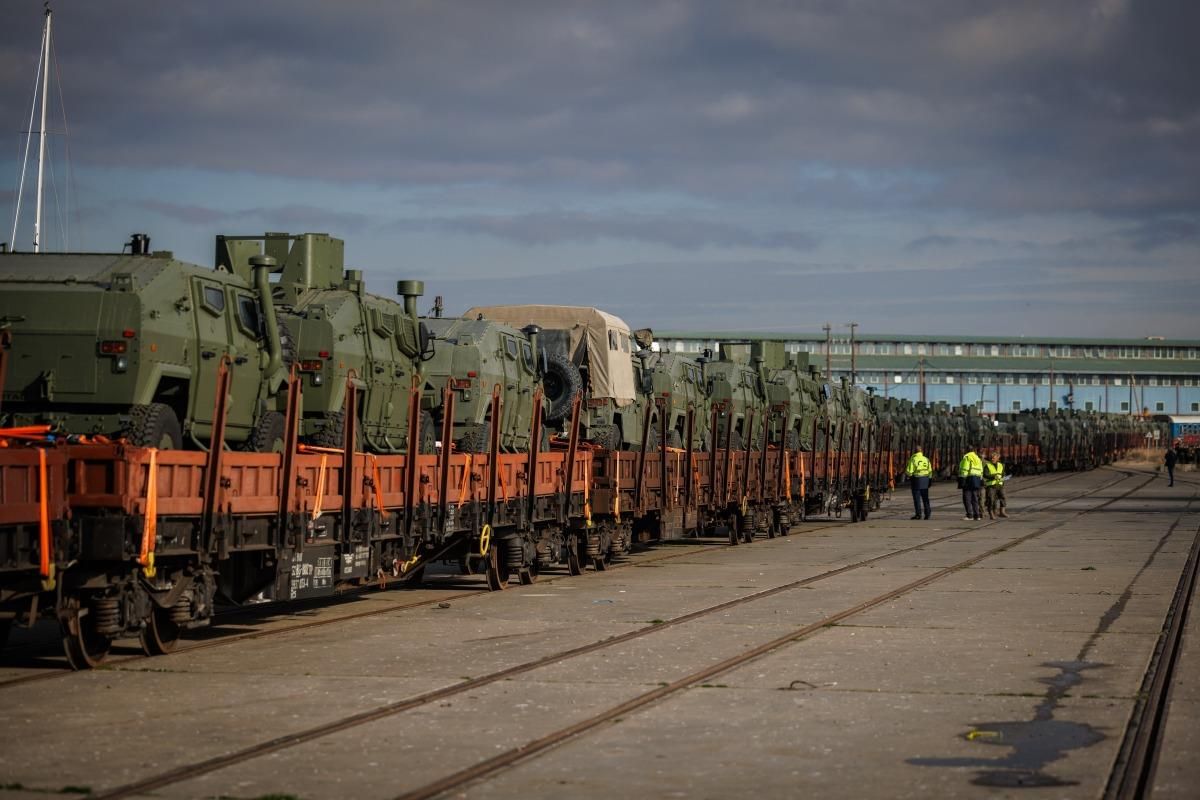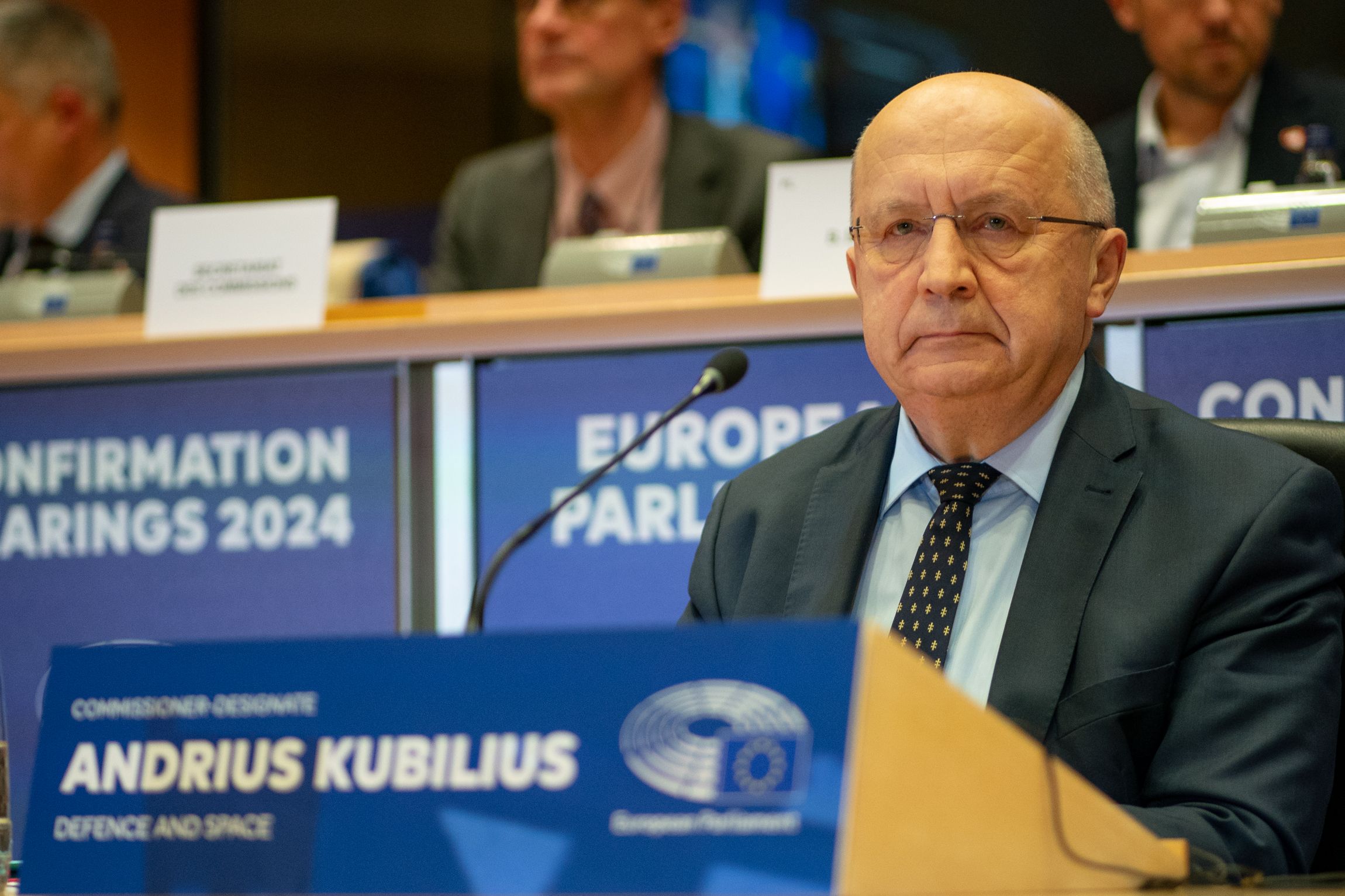Analysis: Can Europe take the lead on its own security?
- Security
- Europe
- Analysis

The year 2025 is already shaping up to be a pivotal time for European security.
US President Donald Trump’s support for security in Europe and Ukraine is looking increasingly uncertain. To the extent that some are fearing that Ukraine and European nations may be excluded from crucial decisions concerning a potential peace agreement.
We take a look at whether Europe can step-up and take charge of its own security.
Europe takes charge?
The Trump administration has been repeatedly calling on Europe to assume greater responsibility for its own defence. In December he called on Europe to “pay their bills” if the US is to remain in NATO, while in January, he argued NATO members must spend 5% of GDP on defence.
However, only around two-thirds of NATO’s 30 European members currently meet the 2% target.
Discussions around increasing the 2% of GDP threshold has been widely discussed this year. A decision on increasing this threshold is expected to be addressed at the NATO summit in The Hague in June.
Increasing the threshold to 3%, a more realistic target compared to Trump’s suggested 5%, has been floated. If all nations not currently meeting this 3% target were to do so, DSEI estimates that global defence spending would rise to approximately USD1.7 trillion – USD300 billion more than the current level of USD1.4 trillion.
Various European countries have been announcing increases to defence spending already this year. Belgium announced in February, following the establishment of a new government, that it will increase investments to reach NATO’s current 2% spending target by 2029. Lithuania, meanwhile, pledged in January to increase defence spending to between 5-6% of GDP by 2026.
However, certain NATO members spend well below the current 2% NATO target. Italy and Spain, for example, allocate far below this level, spending 1.4% and 1.28% respectively. Comparatively, Poland allocates over 4%, more than any European and NATO member, while Russia spends over 6% and the US around 3%.
The new UK government, meanwhile, is cost-cutting, with some fearing that certain defence programmes may face a similar fate to other departments following the release of the Strategic Defence Review (SDR) in the Spring. Nevertheless, the government continues to emphasise the importance of defence and is due to release a roadmap for achieving 2.5% of GDP in Spring. Some critics expect this budget increase is unlikely until 2030. Keep a close eye on the SDR.
Along with individual countries, institutions such as the EU can, and are, stepping up to take a more significant role in defence, in recognition of Europe's growing security requirements.
Towards the end of last year, the inaugural EU Commissioner for Defence and Space Andrius Kubilius – a former prime minister of Lithuania – took the reins to try and improve Europe’s fragmented defence market, increase defence spending, and encourage collective defence.

EU Commissioner for Defence and Space Andrius Kubilius (European Commission)
Europe needs a “big bang” of additional defence funding to defend against any attack from Russia, Kubilius stated in December. In an interview with Politico that same month, he called for EUR100 billion to be allocated towards defence in the EU’s next seven-year budget. This is “ambitious”, as just EUR10 billion of the EUR1 trillion is allocated towards the current 2021-2027 EU budget.
The President of the EU Commission, Ursula von der Leyen, echoes similar rhetoric, calling for EUR500 billion in additional defence spending over the next decade.
Raising this level of investment, however, is not an easy task, especially considering many European countries are struggling economically.
One slightly contentious solution being proposed is through EU defence bonds, which would work similar to government bonds. Advocates claim they could generate economies of scale. Estonia, France, Italy, and Poland support the idea, although, Germany opposes it.
Another solution is through triggering an emergency clause to allow countries to increase defence spending without violating the EU's budget rules. Discussions on this have been floating around for several months, however, during the Munich Security Conference in February the head of the EU Commission officially proposed the idea.
The clause, previously activated during the pandemic, allows EU members to temporarily spend beyond the typical fiscal limits imposed by the EU. These rules typically stipulate that government deficit remains under 3% of GDP and debt under 60% of GDP.
Officials in Germany have already discussed the possibility of loosening their so-called debt brake to increase defence spending. Friedrich Merz, the leader of Germany’s conservative CDU/CSU alliance who is widely expected to win the election on 23 February has signalled he is open to adjustments to the debt limit, although other solutions should be prioritised.
Another approach to encouraging more investment in defence is through private equity firms. This would require loosening the rules and policies from institutions such as the European Investment Bank Group to help improve access to finance for European defence companies.
Governments can also offer to subsidise funding to incentivise investment from these firms, General (retd) Philippe Lavigne, NATO's former Supreme Allied Commander Transformation, told DSEI in February.
The ability of Europe to strengthen its own security remains to be seen. It may be given no choice if faced with a US that significantly reduces its support for NATO and Ukraine.
Tags
- 2
- 2025
- 3
- already
- around
- billion
- charge
- countries
- current
- defence
- eu
- europe
- european
- gdp
- government
- increase
- members
- more
- nato
- pivotal
- security
- shaping
- spending
- take
- target
- time
- up
- year
-
The LETacCIS programme progresses despite delays to some of its projects.
-
The competition will employ a new 'bake-off' style approach to procurement.
-
Expect multiple, large-scale programmes for uncrewed systems from the UK MoD this year.


)
)
)